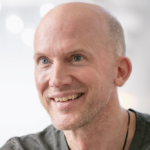
Can You Have Trauma and a Great Relationship
Information
Date & Time
-
-
Location
-
Northern Hemisphere A1/2
1500 Epcot Resorts Boulevard
Lake Buena Vista, FL 32830
Learning Objectives
Participants will be able to:
-
Define trauma, triggers, and baggage.
-
Explain how trauma creates attachment wounds.
-
Describe 2 ways baggage impacts relationships and behavior.
-
Create a map of how parenting failure in childhood creates exaggerated needs in the three specific domains of power, love and money, describing how these relate to what we manifest in our relationships and assume others want from us.
-
Explain the method to inventory the similarities and differences couples have in what makes them feel safe and loved and describe how to process these inventories collaboratively.
Description
Trauma, especially in childhood, creates difficulties with attachments and interpersonal relationships. Attachment wounds can themselves become traumatic as they start to leave lasting difficulties in all of our relationships, nowhere more so than in our romantic relationships, where arguably the stakes can be highest.
So can we ever have a truly great, safe and healthy relationship if we have trauma and attachment wounds? This session answers that question with a message of hope, and suggests a path from relationship difficulties that cause failure to sustainable and incredible success for those who still suffer from the ongoing effects of trauma and attachment issues.
Target Audience
- Counselor
- Marriage & Family Therapist
- Psychologist
- Social Worker
- Substance Use Disorder Professionals
Presenters

Benjamin Fry Psychotherapist, Author, Founder, Televagal, Khiron Clinics and Get Stable Benjamin is the Founder of Televagal, Khiron Clinics and Get Stable. He is an accredited psychotherapist, author and entrepreneur. He has had a rich and varied career, combining his interests in psychology, the media and business. In his twenties he founded two small businesses before starting a family, training as a psychotherapist and writing his first book which led to presenting a television series for the BBC. More recently he has combined his business experience, clinical training and media skills to set up Khiron House, a residential mental-health clinic, to lobby for more effective treatment in the public sector through his non-profit Get Stable and to found Televagal which delivers nervous system informed technology for a variety of health solutions.
Financially Sponsored By
- The Global Exchange Conference - Exchange Events